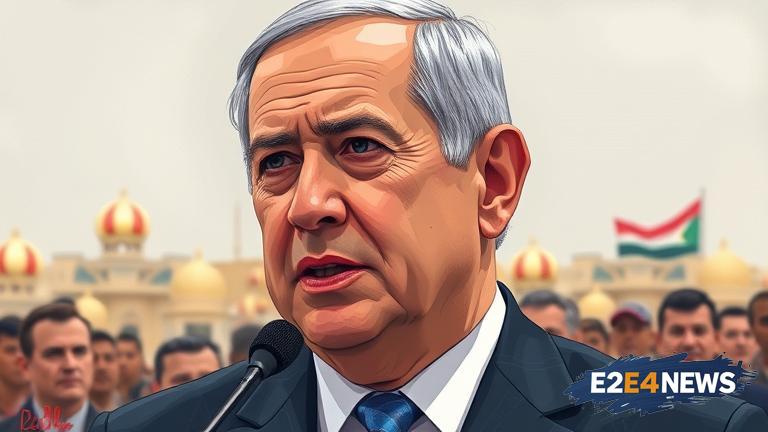Israeli Prime Minister Benjamin Netanyahu has unveiled a plan to take over the Gaza Strip, a move that has sparked widespread concern and criticism from the international community. The plan, which was announced on Sunday, aims to establish Israeli control over the coastal territory, which has been governed by the Palestinian militant group Hamas since 2007. Netanyahu’s plan has been met with skepticism by many, who fear that it could lead to a significant escalation of violence in the region. The Israeli military has been conducting operations in Gaza for several weeks, targeting Hamas militants and infrastructure. The situation in Gaza has been deteriorating for months, with a severe humanitarian crisis unfolding due to a lack of access to basic necessities like food, water, and medicine. The United Nations has warned of a potential catastrophe in Gaza, with the agency’s Secretary-General Antonio Guterres calling for an immediate ceasefire. Despite the warnings, Netanyahu’s government has pressed ahead with its plan, which includes the establishment of a new Israeli administration in Gaza. The plan also calls for the deployment of Israeli troops to the territory, which would effectively mean a reoccupation of Gaza. The move has been condemned by Palestinian leaders, who have accused Israel of attempting to annex the territory. The international community has also expressed concern, with the European Union and the United States calling for restraint and a return to negotiations. The situation in Gaza has been a major point of contention between Israel and the Palestinians for decades, with both sides claiming sovereignty over the territory. The Gaza Strip has been under an Israeli blockade since 2007, which has severely limited the movement of people and goods. The blockade has had a devastating impact on the economy and living standards in Gaza, with poverty and unemployment rates soaring. The humanitarian crisis in Gaza has been exacerbated by a lack of access to basic services like healthcare and education. The Israeli military has also been accused of using disproportionate force in its operations in Gaza, resulting in significant civilian casualties. The plan to take over Gaza has sparked fears of a new wave of violence, with many predicting a significant escalation of hostilities. The international community has called for calm and restraint, but the situation on the ground remains volatile. The United Nations has warned that the situation in Gaza is on the brink of collapse, with the agency’s humanitarian chief warning of a potential humanitarian disaster. The Israeli government has defended its plan, saying it is necessary to protect Israeli citizens from Hamas attacks. However, critics argue that the plan is a recipe for disaster and will only serve to further destabilize the region. The situation in Gaza remains a major challenge for the international community, with a lasting solution still elusive. The conflict between Israel and the Palestinians has been ongoing for decades, with both sides suffering significant losses. A peaceful resolution to the conflict is still a distant prospect, with the situation on the ground remaining highly volatile. The international community must continue to push for a peaceful resolution, with a two-state solution still the most viable option. The plan to take over Gaza is a significant setback to peace efforts, and the international community must act quickly to prevent further escalation. The situation in Gaza is a major test for the international community, with the potential for a humanitarian disaster looming large. The world must come together to prevent a catastrophe in Gaza and push for a lasting peace between Israel and the Palestinians.
